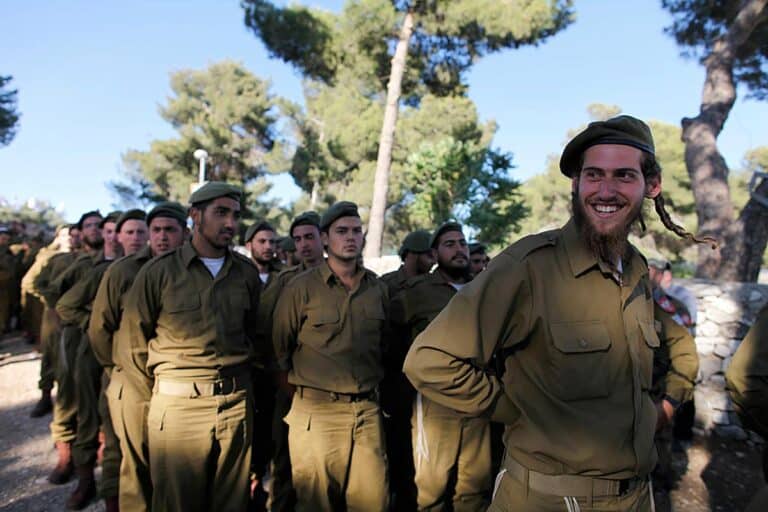
The war between Hamas and Israel has surpassed 148 days, with each week bringing new stories of both tragedy and hope.
Here are the main stories from this past week.
1. Chaotic aid truck incident in Gaza
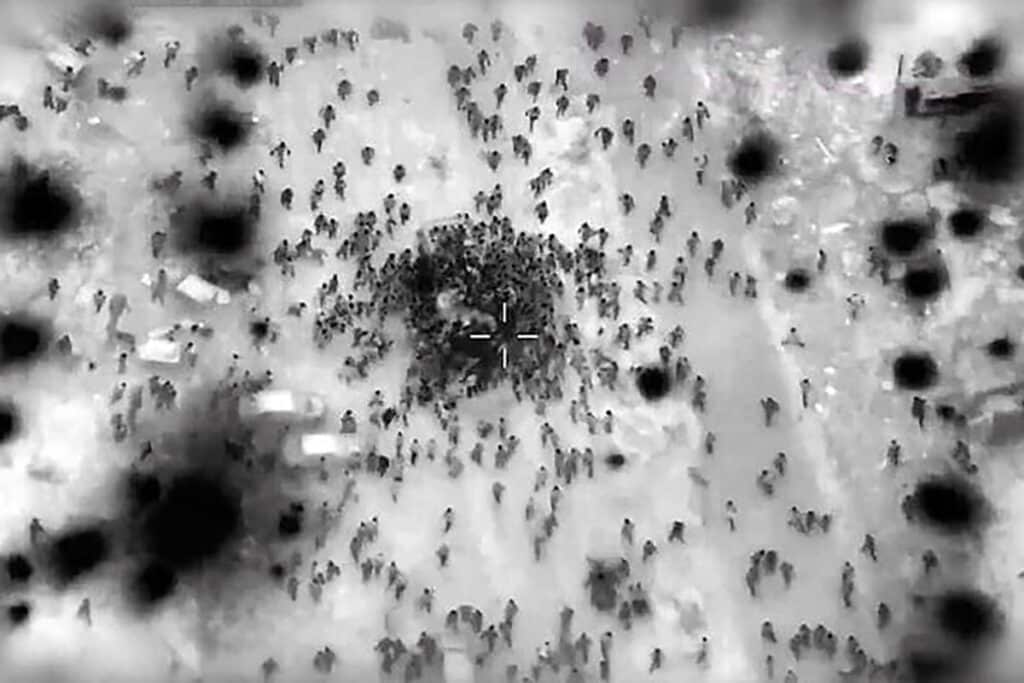
In the latest media controversy surrounding the war, mainstream media outlets hastily published headlines suggesting Israel was responsible for Thursday’s tragic incident in which over 100 people were reportedly killed while attempting to receive aid in northern Gaza, despite a lack of substantiating evidence.
The Hamas-run health ministry in Gaza blamed Israel for the casualties. Gazan officials accused Israel of bombing the crowds gathered in the area, while Palestinian media outlets reported that the IDF fired into the crowds.
The IDF quickly responded to these accusations, stating that most of the casualties were caused by civilians trampling each other in a rush to access aid trucks that were traveling through the area. Some of the people injured and killed in the incident were also struck by the trucks as they attempted to drive away from the area.
The IDF added that its fire caused no more than 10 of the casualties in a separate incident nearby in which a small group of Palestinians approached Israeli forces. After repeated requests to halt their approach were ignored, the soldiers fired warning shots toward the group, resulting in an estimated 10 casualties.
The IDF has released a video evidence proving the death of many Palestinians in northern Gaza was due to aid trucks running over them, stampeding, and Palestinian armed men, likely Hamas, shooting at them, causing dozens of casualties.
— Hen Mazzig (@HenMazzig) February 29, 2024
Only a fraction of Palestinians who… pic.twitter.com/9f6dlbp8Pi
Despite the lack of evidence to substantiate claims that the IDF used tank fire or deliberately fired at civilians, and with video evidence suggesting otherwise, international media headlines largely echoed Hamas’s narrative.
The tragic incident elicited concerned responses from world leaders, with many saying it underscored the need for both a ceasefire and an improved mechanism for delivering aid into Gaza. Two days later, the U.S. conducted an airdrop of 38,000 meals into Gaza, which is expected to be the first of many such deliveries.
Read more about the chaotic aid truck incident and its aftermath.
Digging deeper: Public order has largely collapsed in northern Gaza as Hamas loses control of the Strip amid the ongoing war. The chaos has severely hindered the delivery of humanitarian aid, with armed groups seizing much of the aid and civilians often forced to fight or pay exorbitant prices for basic necessities.
The incident on Thursday exemplified this chaos and the dire humanitarian crisis, with aerial footage showing large crowds swarming around the aid trucks and ground footage capturing people trying to grab items from the trucks.
2. Haredi draft controversy

A longstanding debate in Israel that has persisted since the country’s founding is once again sparking national discourse: should Haredi young men be required to serve in the IDF?
The issue resurfaced last month when the IDF announced plans to increase the time Israelis must serve in the army and in reserves, citing the army’s need for increased manpower amid the ongoing war in Gaza and potential future challenges.
Many Israelis argued that the bill was discriminatory as Haredim — who make up over 13% of Israel’s population — are the only Jewish citizens in the country who are not required to serve. If the tens of thousands of Haredim who currently receive exemptions for Torah study were to enlist in the army, then there would be no need to extend everyone else’s service, they argue.
This week, Defense Minister Yoav Gallant called for an end to Haredi military exemptions, stating that his ministry would support a new law on the matter only if it gains backing from centrist coalition members advocating for Haredi conscription, including War Cabinet Minister Benny Gantz.
Responding to Gallant’s stance, Prime Minister Benjamin Netanyahu warned that such demands on the issue could lead to the government’s collapse and new elections, which would “mean the end of the war.”
Netanyahu argued for setting goals for Haredi enlistment and devising strategies to achieve them, though he did not provide specific examples. Previous laws on the issue set quotas for Haredi enlistment but lacked enforcement mechanisms, resulting in the failure to meet targets.
Digging deeper: The debate over Haredi conscription has been a recurring issue in Israel since its founding. Learn more by listening to “Unpacking Israeli History”:
In 1948, Prime Minister David Ben-Gurion reached an agreement with Haredi leaders allowing 400 yeshiva students to be exempt from military service, a number that has since skyrocketed. In the past year alone, over 66,000 young men have received exemptions through the mechanism.
The “Tal Law” of 2002 aimed to integrate yeshiva students into the IDF or national service, but it was never fully enforced. The Supreme Court has ruled against the constitutionality of such exemptions, and recent attempts to legislate new laws have failed to meet the court’s requirements.
Last year, the cabinet passed a resolution deciding that the IDF would not draft Haredim until a new law is formulated. The Supreme Court challenged this in recent weeks, demanding that the government provide a legal justification for the decision.
3. IDF strikes deepest in Lebanon since 2006
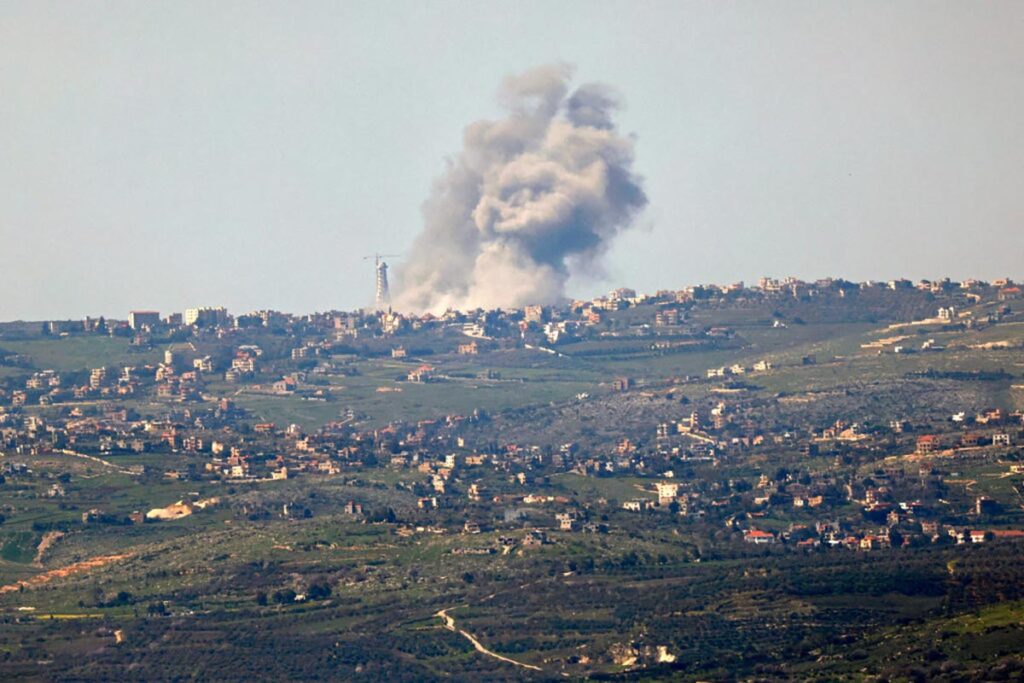
The IDF carried out strikes deep in Lebanon’s Beqaa Valley this week after an Israeli drone was downed by Hezbollah. This marked a new milestone in the battle with Hezbollah as it was the IDF’s deepest strike in Lebanon since the 2006 Second Lebanon War.
The strikes targeted Hezbollah’s air defense system in Baalbek, resulting in the deaths of two Hezbollah members. The Beqaa Valley, a stronghold for Hezbollah, is located even further north than Beirut, Lebanon’s capital.
Following the IDF’s actions, Hezbollah fired dozens of rockets toward the Golan Heights.
Syrian media also reported Israeli strikes in Damascus near the Syrian-Lebanese border and in the northern Syrian area of Baniyas throughout the week. The IDF has not officially claimed responsibility for the strikes.
In Damascus, the strikes reportedly targeted the Sayida Zeinab neighborhood, a stronghold for Iran-backed militias. Near al-Qusayr, close to the Syrian-Lebanese border, a vehicle was reportedly struck by an Israeli attack, with some reports suggesting a Hezbollah operative was killed.
In Baniyas, the strikes reportedly hit a building where Iranian militants were believed to be hiding. Iranian media later reported that Reza Zarei, a member of Iran’s Islamic Revolutionary Guard Corps (IRGC), was killed in the strike.
Digging deeper: While the IDF does not typically acknowledge its strikes in Syria and Lebanon, they are widely understood to be part of Israel’s efforts to counter Iran-backed proxies in the region.
Iran transfers weapons and equipment to Hezbollah in Lebanon by routing shipments through Syria. Iran also maintains forces in Syria to advise and command its proxies operating in both Syria and Lebanon. Several members of the IRGC have been killed in alleged Israeli airstrikes since the beginning of the Israel-Hamas War.
4. Hostage deal talks progress and stall
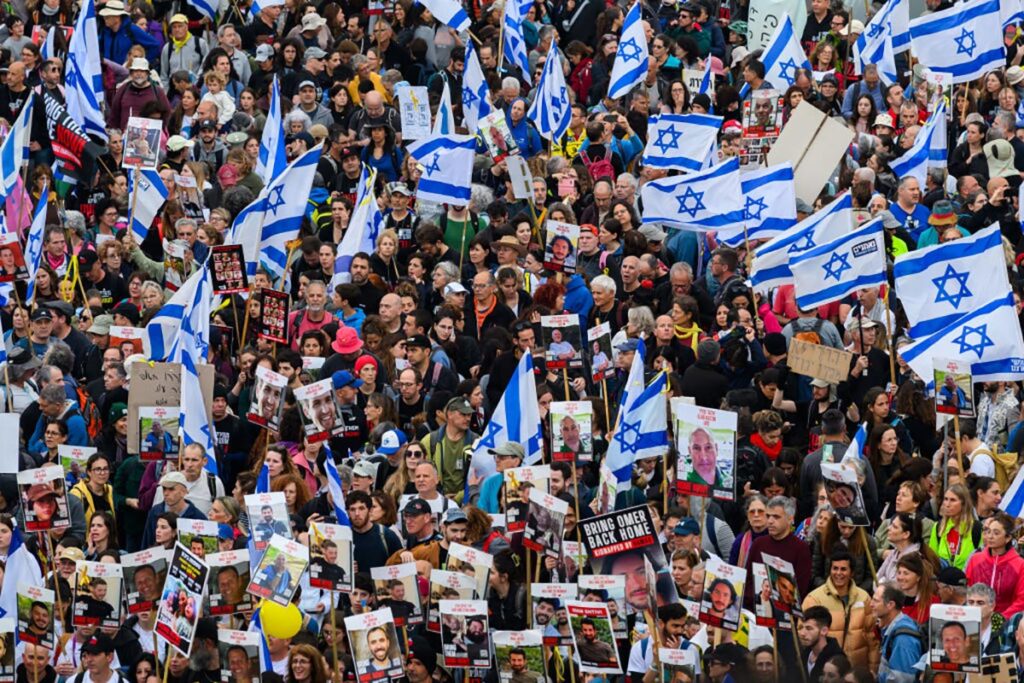
Efforts to reach a ceasefire and hostage release deal appeared to progress this week before stalling on Sunday when Israel announced it would not send a delegation to Cairo for continued talks.
An Israeli official told The Times of Israel that Hamas “refused to address Jerusalem’s demand to provide a list of living hostages and to lock down how many Palestinian prisoners Israel must release for every hostage freed.”
Additionally, a Hamas official told CNN on Sunday that the group demands an end to the war in Gaza as part of a hostage deal, a condition that Israel does not accept.
Previously on Saturday, a U.S. official said that Israel had agreed to the fundamentals for a new deal and the success or failure of the talks depended on Hamas.
The reported deal would entail a six-week ceasefire, a phased release of Israeli hostages and Palestinian prisoners, and increased humanitarian aid for Gazans.
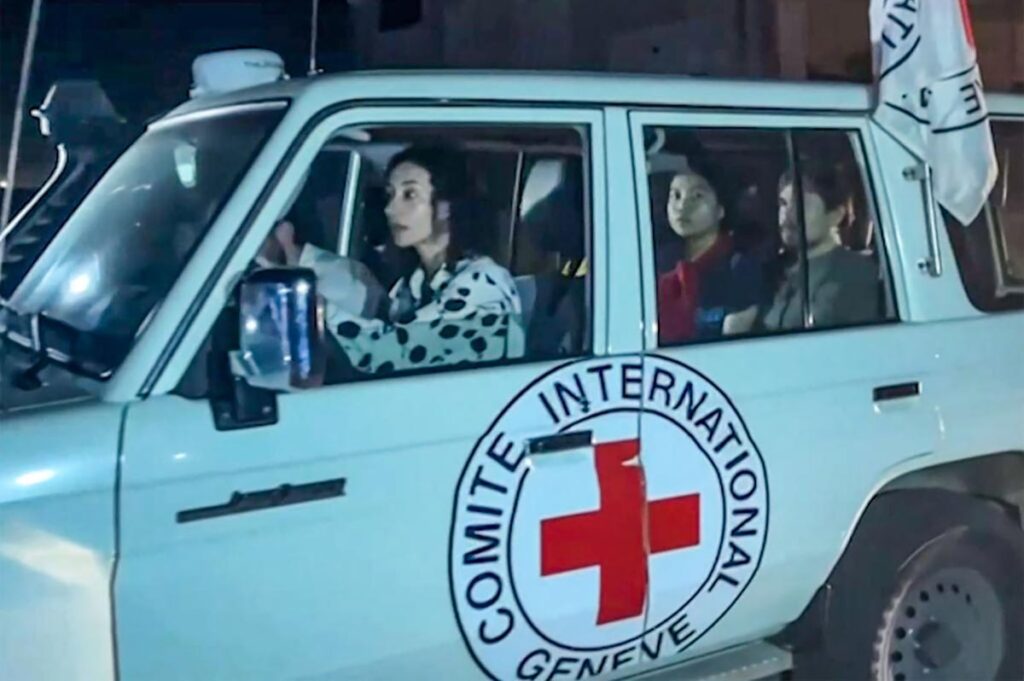
Earlier in the week, an Israeli delegation did travel to Qatar to continue discussions. Meanwhile, in Israel, families of the hostages and tens of thousands of supporters conducted a four-day march from the Gaza border to Jerusalem, demanding that the government work harder to reach a hostage release deal.
Why it matters: The recent progress in talks had raised hopes for a second potential ceasefire and hostage release deal. However, the latest stall in negotiations highlights an ongoing impasse in reaching an agreement.
Netanyahu has repeatedly stressed that Israel has limits on the concessions it is willing to make for the release of the remaining hostages.
“We are committed to getting a hostage deal, but not at any price,” he said, adding that his “red lines” are: “We will not end the war, we will not remove the IDF from the Gaza Strip, and we will not release thousands of terrorists.”
5. Israel faces roadblocks at Eurovision

Israel is facing challenges in getting a song approved for Eurovision, with the European Broadcasting Union (EBU), which runs the competition, already disqualifying two songs submitted by Israel.
In early February, Israel selected Eden Golan to represent the country at the Eurovision Song Contest, scheduled for May. The EBU reportedly disqualified Golan’s initial song “October Rain,” which refers to the massacre conducted by Hamas on Oct. 7, as “too political.”
In response, Israel’s national broadcaster KAN said that it did not intend to replace the song and would even leave the competition if it was rejected, although President Isaac Herzog stressed afterward that Israel should try and take part in the song contest regardless.
Israel then submitted another song called “Dance Forever,” which references the massacre at the Nova Music Festival. However, on Wednesday, Ynet reported that the EBU appeared to have rejected the new song as well for being “too political.”
In the latest development of the saga, Israeli media reported on Sunday that Israel has agreed to modify or replace its initial song “October Rain” to ensure its participation in the contest.
Digging deeper: The controversy over Israel’s song submission is not the only hurdle Israel faces at the renowned competition. In recent months, anti-Israel activists have called for Eurovision to ban Israel from the competition due to the ongoing war in Gaza. However, after conducting a review, the EBU said that Israel could take part in the competition.
While some may view Eurovision as a cheesy, lighthearted contest, it holds special significance for many Israelis. Israel has participated in Eurovision 47 times since first entering the contest in 1973, winning four times, most recently in 2018. For Israel, Eurovision reflects the Zionist dream of being “a country like any other.” Read more or watch our video below.
Originally Published Mar 3, 2024 01:19PM EST


